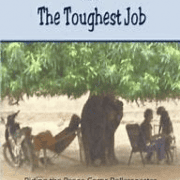The World Ten Years From Now

a book review by Connie Kent
Guillén, Mauro F. 2030. St. Martins, 2020. Available at the RVM library
The world as we know it is changing. Guillén makes a compelling case that many of the rules we learned in order to succeed in the world will no longer be appropriate by 2030. During the seven years before the book was published in 2020, Guillen gathered information and projected trends to see what our world might be like in ten short years.
No longer will babies be plentiful; there will be more grandparents than grandchildren, and retirees will outnumber workers. The middle class in Asia and sub-Saharan Africa will outnumber the middle class in the US and Europe combined. Non-Western consumers will drive the global economy. Women will own more of the wealth of the world than men. Cities will grow, exacerbating inequality and pollution, inching us closer to potentially catastrophic social and climate crises.
We are seeing technology disrupt the status quo by changing the concept of products (cellphones are replacing telephones); the way products are made (a robot can displace five or six workers); how it is sold (think Amazon); who uses the products (1.5 billion people in the world own or share a cellphone but must relieve themselves in the open or go to a shared outhouse); and how people interact with each other (think of FaceTime and Zoom meetings).
Artificial Intelligence, Guillén claims, will bring about epochal change.  As an example, truck drivers constitute the largest occupational group in twenty-nine of our fifty states. They are at risk of losing their jobs as a result of autonomous vehicle technology. Another example: surgeons are beginning to use robots to assist with delicate operations.
As an example, truck drivers constitute the largest occupational group in twenty-nine of our fifty states. They are at risk of losing their jobs as a result of autonomous vehicle technology. Another example: surgeons are beginning to use robots to assist with delicate operations.
Most intriguing to me is the potential impact of what’s called “blockchaining.” The technology began with crypto currencies. But its potential applications include government services, intellectual property, trade transactions, counterfeit regulation, gun control, poverty alleviation, and environmental protection.
In a postscript, Guillén speculates that Covid-19 will accelerate such trends as declining fertility and use of technology. In order to survive 2030, we must challenge received wisdom, rather than honoring inherited assumptions and ways of thinking. We will not survive the changes unless we challenge our traditional mindset.
Guillén, Mauro F. 2030. St. Martins, 2020. In RVM library








Leave a Reply
Want to join the discussion?Feel free to contribute!